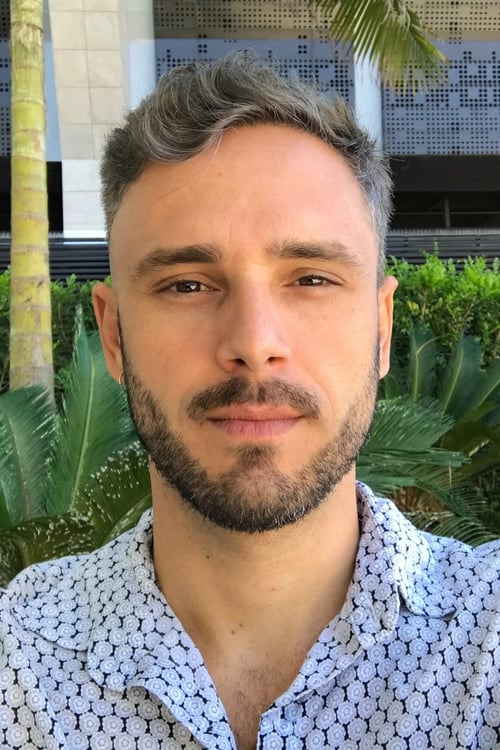I Remember the Crows (2018)
Genre : Documentary
Runtime : 1H 24M
Director : Gustavo Vinagre
Writer : Gustavo Vinagre, Julia Katharine
Synopsis
Julia Katharine, a Japanese-Brazilian trans woman, opens her door to the filmmaker. Before day breaks, she evokes her relationship with her parents, a young love that never was, her sleepless nights and her passion for cinema.

Would have one of the masters of Brazilian cinema always made the same film? From an encounter with documentarian Eduardo Coutinho recorded in 2012 and a vast amount of archive footage, this film offers a general look at Coutinho's work and testifies how the filmmaker’s thinking still stand the test of time to this day and age.

Gatto and Barbot are lifelong companions for more then 40 years and have just moved to a big decayed and abandoned building downtown Rio de Janeiro, where they start to live and promote their dance company rehearsals. The difficulties of everyday life are merged to artistic creation and to their belief in the Orishas gods. Through dance they spread through the city, occupying their territories.

Bruno Aleixo was invited to write a biopic about his own life. Lacking ideas, he decided to ask his closest friends for inspiration. Reunited in a cafe, each of his friends suggests a different idea, more or less biographical.

Hearing the summons from an elderly man, a volunteer troop of middle-aged men gather to defend their country from dark foreign invaders.

Three men in succession propose marriage to Grace Darling; she accepts all! Since they are roommates, the three discover their problem in short order; when they return for an explanation, they're in for a surprise.

“Once upon a time, before people came along, all the creatures were free and able to be with one another”, narrates the voiceover. “All the animals danced together and were immeasurably happy. There was only one who wasn’t invited to the celebration – the frog. In his rage about the injustice, he committed suicide.” Something Romani and frogs have in common is that they will never be unseen, or stay unnoticed. In her film, young director Leonor Teles weaves the life circumstance of Romani in Portugal today with the recollections of a yesterday. Anything but a passive observer, Teles consciously decides to participate and take up position. As a third pillar, she establishes an active applied performance art that becomes integrated in the cinematic narrative. Thereby transforming “once upon a time” into “there is”. “Afterwards, nothing will be as it was and the melody of life will have changed”, explains a voice off-camera. Golden Bear for Best Short Film 2016

Catarina Menezes is a bisexual TV reporter who decides to have a child on her own and chooses Spanish humanitarian doctor Rafael to father the child, setting up an elaborate charade to lure him into her bed. When Catarina reveals her pregnancy, though, her current live-in girlfriend doesn't take to it kindly and promises to make Catarina's life hell; to make matters worse, Rafael finds out her true identity and comes to Lisbon to see her. And Catarina's sole refuge is in the arms of fellow journalist Francisco, her professional relationship slowly becoming a romantic one.

Despite his age and general weariness, Gebo keeps on working as an accountant to provide for his family. He lives with his wife, Doroteia, and his daughter-in-law, Sofia, but it is the absence of João, son and husband, that worries them.Gebo seems to be hiding something, especially to Doroteia, who is anxiously waiting to see her son again. Sofia is also waiting for her husband to come home, and yet she fears him. All of a sudden, João arrives and everything changes.

Francisco, behave! I Know it's your birthday, you are thirty now, it's carnival, you've dressed as a cowboy for the school party and you are surrounded by kids you hate. But that's no reason to be so annoying... Francisco, repeat after me: "Up to your 30s you have the face God has given you. After that, you get the face you deserve".
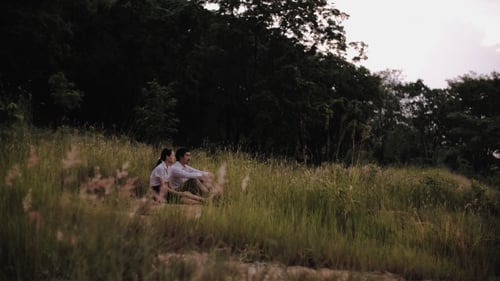
A film director and her muse who was a student activist in the 1970s, a waitress who keeps changing jobs, an actor and an actress, all live loosely connected to each other by almost invisible threads. The narrative sheds its skin several times to reveal layer upon layer of the complexities that make up the characters’ lives.

One night, a group of workers realises that the administration is stealing machines and raw materials from their own factory. As they organize to survey the equipment and block the relocation of production, they are forced to stand at their posts with no work to do, as a form of retaliation, while negotiations over general lay-offs take place. The pressure leads to a breakdown of the workers along with the world around them.
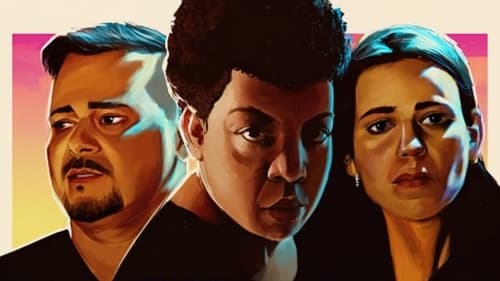
The inhabitants of the Brazilian city of Contagem yearn for a better life. At the core of it all is Selma, a woman dreaming about the heart of the world: it could be anywhere, as long as it's a place where to feel happier.
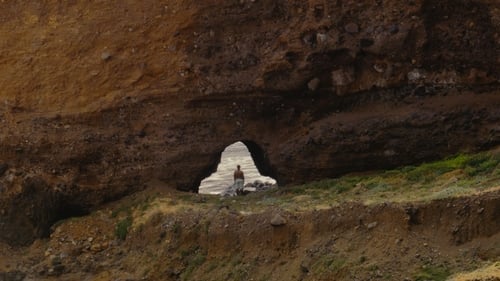
Miguel —alias Tibars, alias “Djon África,” born and raised in Portugal— is a kindhearted Rastafarian who loves women and lives a carefree life. Until one day a stranger tells him he's the spitting image of his father, “a player and a crook.” His father, whom he never even knew! This intriguing discovery makes him change tack. Particularly when his grandmother, who always took care of him, finally tells him how his father was in prison; how sad Miguel was as a toddler when he couldn't see him; how his father was banished to Cape Verde. Miguel goes there to visit him. Who is this man?

Linda is a young woman of Chinese heritage whose mother converted to Christianity after gaining some fame as a badminton player. Her friend Cahyono is tired of anti-Chinese prejudice and now tells people he’s from Japan. Together, they try to make sense of their place in the Indonesian society.

Two magicians in Philadelphia practice their slight of hand tricks.

Little Lana was 3 years old when she was abandoned alone in the zoo. Raised by a giraffe trainer, the zoo is the only world she knows. Until one day, a charming magician arrives and Lana finds her love, for she is ready to leave the zoo. Lana embarks on journey, until one day, she decided to go back to the place where she was abandoned.
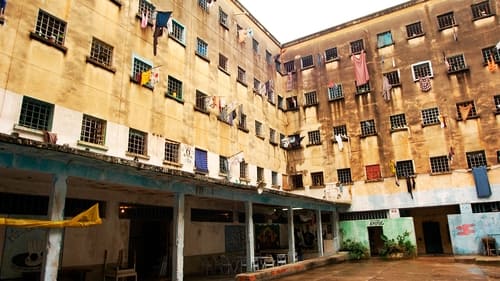
In 2002, the greatest prison in Latin America, Complex Carandiru, was demolished. A couple of months before its implosion, director Paulo Sacramento trained some inmates and together with his crew, they produced many hours of footage, showing daily life in prison.

An opera ballet that doesn't exist. A ghost-like piece, played in Opera Bastille and danced at Opera Garnier. An almost mystical link between both scenes. A musician is testing sounds in Bastille's pit. The choir are taking their place in the rehearsal studio. Both sides are fine tuning the work in progress of an opera ballet: Sarah Winchester, her grief, her madness, her home and her ghosts.

In a small town in the countryside in the south of Brazil, a teenager that uses the codename Mr. Tambourine Man spends his time in Internet, at school, smoking pot with his best friend Diego and with his dysfunctional mother. He dreams on leaving his hometown to watch a Bob Dylan's show but seems to be hopeless stranded in the spot.
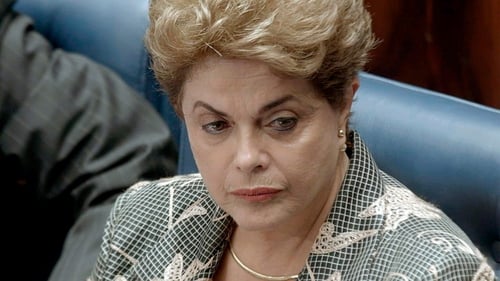
The impeachment and removal from office of Brazilian President Dilma Rousseff in 2016 was triggered by a corruption scandal involving, among others, her then vice-president Michel Temer. Director Maria Augusta Ramos follows the trial against Rousseff from the point of view of her defence team. This is a courtroom drama that unfolds slowly: the appearances of the various parties gradually turn the proceedings into something akin to theatre. Inside the courtroom, grand emotions are played to full effect whilst, on the other side of the doors, lobbyists and supporters pace the corridors. Meanwhile, outside, in front of Brasília’s modernist government buildings, demonstrators are chanting like a Greek chorus. Only the main character, Rousseff herself, remains professional and aloof.




